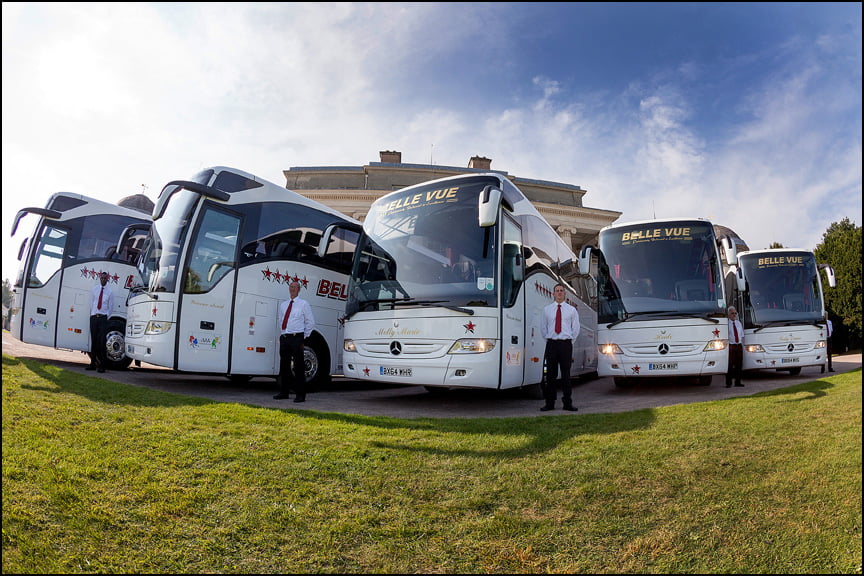Raising Fleet standards leads to drop in fleet costs
We recently had the pleasure of talking all things fleet with Phil Hitchen, Managing Director of the booming, 25 year old coach business, Belle Vue Coaches of Manchester, for the latest episode in our Driving for Better Business Podcast series.
Getting drivers on board with your company culture
We were particularly interested in Phil’s approach to delivering first class service to his customers. He recognises that no business can deliver great service unless the whole company understands and embraces that culture.
Belle Vue have a number of incentives in place to recognise driver performance. These include a hotly-contested, cash-prize league table of the smoothest driving style. The company uses Traffilog fleet telematics to monitor braking, acceleration and cornering and to help them achieve peak performance driving. Not only is it useful in giving feedback to help drivers improve their driving style, it also saves ‘copious amounts of fuel’. Phil estimates that fuel saving to be about £63,000 a year.
Drivers are on a scoring system with the aim of achieving zero incidents – the smoothest driving style possible. While the company rewards the top performers with prizes, the real pride is being seen to be the best among driver peers – being part of what he refers to as the SAS of his ‘soldiers’.
The company monitors every vehicle via CCTV inside and outside.
“At first, drivers were a little bit negative, but now, it’s just second nature to the driver, they take it on board and they quite like it really. When people are driving efficiently, they drive safer, passengers get a comfier ride, there are less roadside RTAs, and there are more vehicles on the road rather than in the garage being repaired. If you invest in that system, and you invest in the right supervisors and compliance team tracking, drivers perform better,” he says.
Improved safety checks save thousands of pounds
The company run a rigorous regime of safety checks which not only wins awards for this coach service provider, but also saves the business thousands of pounds every year.
“If your maintenance team follow the fleet operational guidelines and procedures, it just runs like clockwork and it’s no fluke that your insurance claims records stay low, your MOT pass rates stay at 100%,” says Phil.
He says the same applies to vehicle inspections: “The traffic commission and DVSA carry out their inspections every 6 weeks: we like to do ours every 4 weeks. It keeps the fleet running at optimum level.”
Set high standards – the ‘SAS’ of drivers
Phil’s ethos is clear – set high standards, look after and reward the drivers, and good things happen in his business.
“The biggest thing I’ve learnt about the business is nothing mechanical or operational. It’s about human behaviour – how we can get the peak performing teams. We reverse the standard organisation pyramid with the drivers at the top and the directors at the bottom. The drivers are the ones out there battling through traffic, and need every resource to be able to execute their job to a high standard.”
It’s clear that Phil’s business culture is a great example of the potential benefits that can be gained for a company that is operating at this level. This approach to driver management translates into a better impression with clients, helps retain loyal customers and win new business – and the reduction in fleet costs saves money for the business year after year.
This 30 minute episode of the Let’s talk Fleet Risk podcast series is now available along with previous episodes offering insights and research to help fleet managers operate more safely and efficiently Conversations with experts on the distractions of hands-free phone use, on managing a grey fleet of 5000 in the public sector, alongside other complex transport needs, and the myths associated with van operations are all available now.






